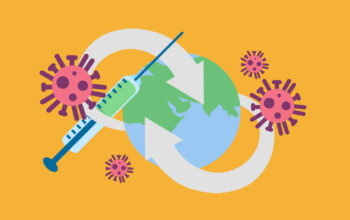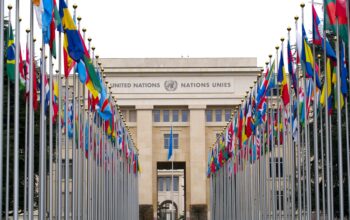Accelerating antiviral development is central to pandemic preparedness

As leaders and health experts from across the world gather in New York for the UN General Assembly, they are considering three issues that are critical to the future of global health and global health security.
As world leaders discuss political declarations on ending tuberculosis (TB), delivering universal health coverage (UHC) and strengthening pandemic prevention, preparedness and response, the experience of the Covid-19 pandemic will be front of mind.
Highlighting pandemic-preparedness
Among the key questions will be: What have we learnt that can accelerate the development of new vaccines and treatments? How can health systems that were ruthlessly exposed during the recent health crisis be strengthened? What are the right lessons that we must learn if we are to get a headstart in preparing for the next pandemic?
The response to Covid-19 was a remarkable feat of science delivering, accompanied by the best in public-private partnerships. Phase 1 clinical trials for vaccines started just 66 days after the new virus sequence was shared, with the approval of a safe and effective vaccine in 326 days. This is almost four times faster than the fastest vaccine approved before.
The response to Covid-19 was a remarkable feat of science delivering, accompanied by the best in public-private partnerships.
Developing antiviral treatments
The 100 Days Mission, set out at the G7 in 2021, provides an ambitious target to go even faster — with safe and effective diagnostics, therapeutics and vaccines available within 100 days of a pandemic threat being detected. To accelerate progress in discovery and development of new antiviral treatments, seven pharmaceutical companies have established the INTREPID Alliance with the explicit aim of prioritising treatments that can be rapidly deployed during the next pandemic.
In the coming months, the Alliance will publish an initial list of promising antiviral compounds derived from a global landscape assessment and scientific evaluation. By engaging with policymakers and public health bodies to ensure that antivirals are integrated appropriately into global and local efforts, we can be better prepared against future pandemics.
Public and private collaboration
A report from a summit held by the Alliance earlier this year also sets out recommendations, highlighting agreement from across governments, industry and multilateral organisations on the importance of ensuring we can develop the antivirals we will need to respond to future pandemics. If we get this right, we can not only place the world on a firmer footing for future pandemics but it will further underline the role that partnership and innovation play in tackling the biggest health challenges we face.
This blog by James Anderson, Executive Director of Global Health at IFPMA and Chair, INTREPID Alliance, was originally featured in Media Planet’s Future of Healthcare campaign on 11 September 2023.
Author






